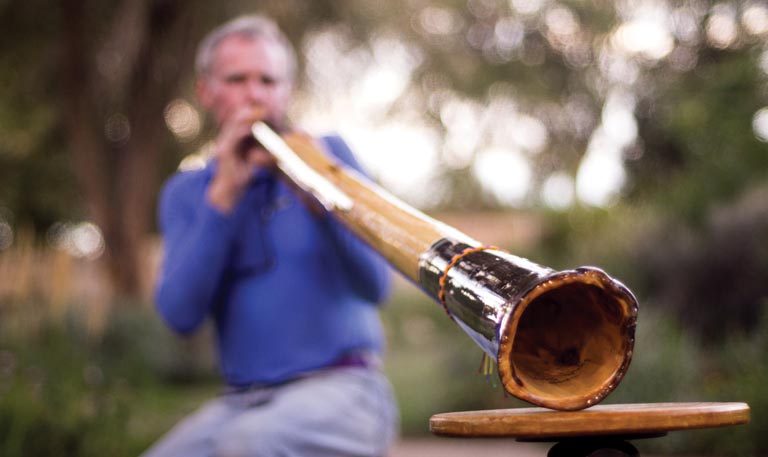
Snoring and obstructive sleep apnoea syndrome are two highly prevalent sleep disorders caused by collapse of the upper airways.1,2,3 The most effective intervention for these disorders is continuous positive airway pressure therapy, which reduces daytime sleepiness4 and the risk of cardiovascular morbidity and mortality in the most severely affected patients (apnoea-hypopnoea index (measured as episodes per hour) > 30).5 For moderately affected patients (apnoea-hypopnoea index 15-30) who complain about snoring and daytime sleepiness, however, continuous positive airway pressure therapy may not be suitable and other effective interventions are needed.1,6,7
AS, a didgeridoo instructor, reported that he and some of his students experienced reduced daytime sleepiness and snoring after practising with this instrument for several months. In one person, the apnoea-hypopnoea index decreased from 17 to 2. This might be due to training of the muscles of the upper airways, which control airway dilation and wall stiffening.8,9,10 We tested the hypothesis that training of the upper airways by didgeridoo playing reduces daytime sleepiness in moderately affected patients.
Read the full study at the National Library of Medicine: Didgeridoo playing as alternative treatment for obstructive sleep apnoea syndrome: randomised controlled trial



